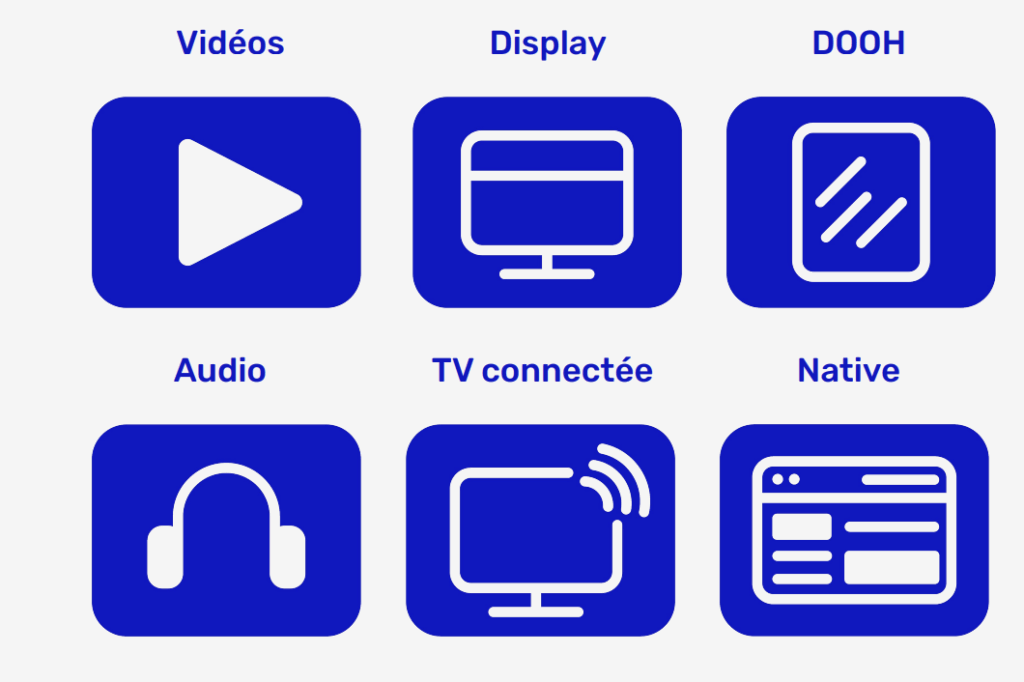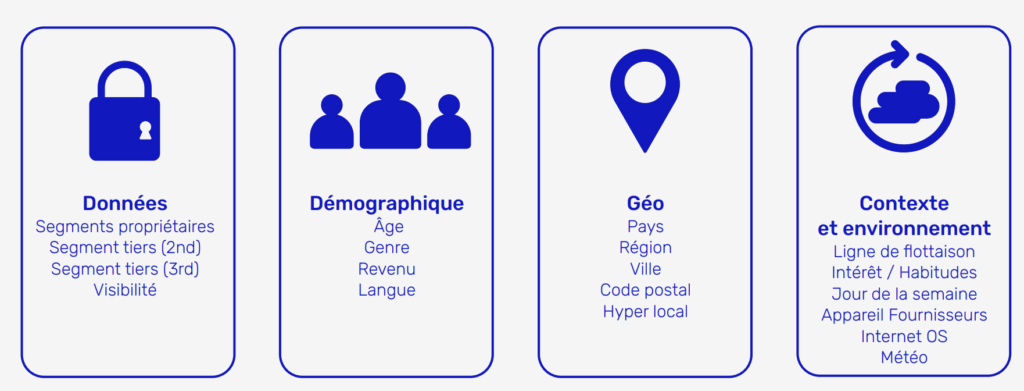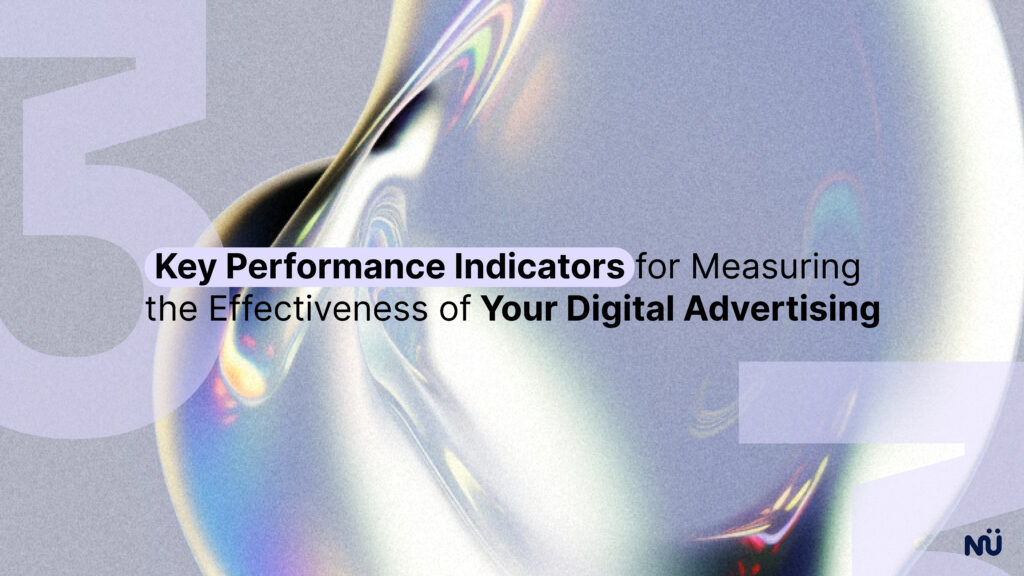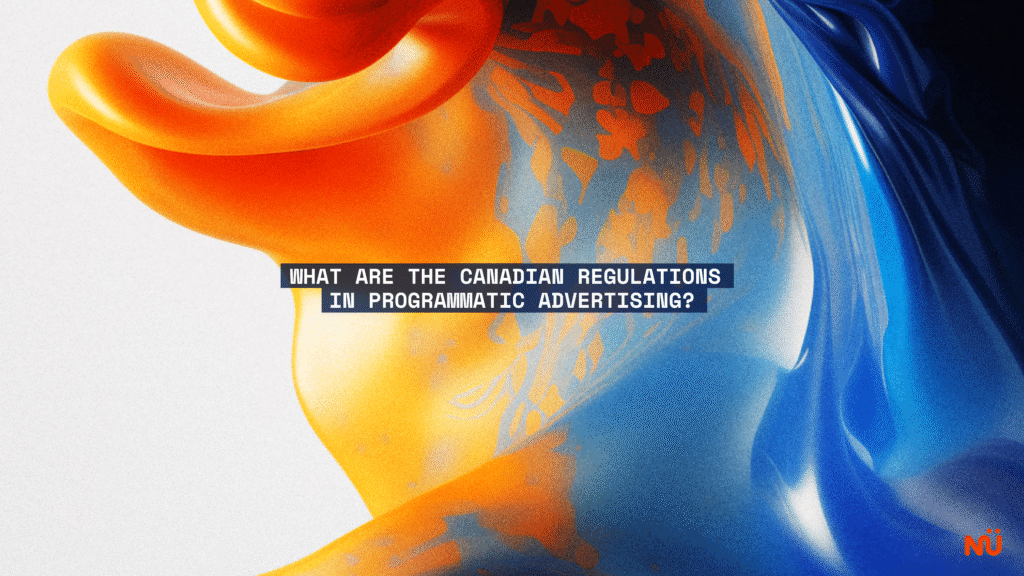For marketers, buying ad space used to be expensive and tedious. The process mirrored traditional print media: contacting the right publishers, negotiating inventory, and signing insertion orders… only to realize the target audience didn’t quite match.
It’s in this context that programmatic advertising emerged, disrupting traditional marketing practices and reshaping the way media buying works.
Today, programmatic advertising has become the cornerstone of every communication strategy. It stands out as an innovative solution to reach audiences more effectively. Algorithms now power tailored media plans—that’s the true promise of programmatic advertising.
So, what exactly is programmatic, how does it work, and what trends should advertisers watch for? Let’s break it down.
Defining Programmatic Advertising
La publicité dite « programmatique » se concentre avant tout sur le consommateur. Elle adapte en temps réel chaque message publicitaire au profil de votre cible. Résultat ? Une offre 100 % personnalisée via lProgrammatic advertising is, above all, consumer-centred. It adapts each message in real time to match your target audience’s profile. The result? A 100% personalized offer delivered through the most relevant media channels, at the right time, and at the best price.
Looking to drive qualified traffic and boost visibility? With its ability to target audiences and automate media buying in real time, programmatic advertising is a channel you can’t ignore.
Whether it’s display ads on websites or video ads across social media, programmatic has completely reshaped the advertising landscape. It has brought about a true “democratization of media buying” by merging two complementary systems:
- SSP (Supply-Side Platform): enabling publishers to sell their ad inventory.
- DSP (Demand-Side Platform): where media traders select the most strategic placements for advertisers, across formats such as display, video, audio, or even drive-to-store.
Customer service interactions, product searches, or purchase history—all this data can now be leveraged to fuel smarter, more effective campaigns.

The Advantages of Programmatic Advertising for Advertisers
Optimal targeting
Thanks to the wealth of available data, advertisers can finally move beyond “one size fits all” campaigns. Programmatic ensures precise, tailored communication.
Data Management Platforms (DMPs) play a crucial role here. They collect and analyze massive datasets from browsing activity, social interactions, or purchase histories, segmenting them into thousands of micro-audiences. The goal? To allow advertisers to reach the exact public they want, with tailored messages that resonate.
Flexibility and real-time control
In digital marketing, speed is everything. Unlike traditional media buying, which often required lengthy negotiations and rigid commitments, programmatic campaigns can be adjusted instantly.
Audiences, bids, and messages can be fine-tuned on the fly. And with a wide variety of formats available—video, display, native, social ads—brands can reach their audience wherever they are, with maximum impact.
Example: imagine a food-delivery app campaign. Programmatic can instantly identify users who have recently searched for restaurants or recipes online. Those users will see a timely ad for the app, increasing the likelihood of conversion.
If a message doesn’t resonate as expected, adjustments happen in real time.
Smarter budget allocation
The budget is the cornerstone of any marketing strategy. This is where programmatic shines.
Ad buying is done through real-time bidding (RTB) or guaranteed CPM deals. This ensures advertisers spend smarter, controlling exactly where each dollar goes, while aligning spend with the most relevant audience segments.
By personalizing communication, programmatic boosts conversion rates and maximizes return on investment (ROI). The result: measurable sales growth.
Because programmatic campaign management requires expertise, working with specialists ensures that every lever is optimized to fit your marketing goals.
Discover how NÜ can help you activate the right programmatic strategies for your brand.
Targeting Methods in Programmatic Advertising
Behavioural targeting
Focuses on online behaviour. Example: a user visits an e-commerce site but leaves without buying. With programmatic, that same user can be retargeted with ads for the brand on third-party websites.
Contextual targeting
Matches ads to the content being consumed. Example: a camping gear brand can show ads on travel blogs, hiking forums, or outdoor news sites. The audience is already predisposed to the message.
Geographic targeting
Targets users within a specific location. Example: a restaurant chain can promote offers only to local audiences, minimizing waste and ensuring ads are shown to people likely to visit.
Keyword targeting
By selecting brand-relevant keywords, advertisers ensure alignment between the ad message and user interests.
The key is balance: targeting too broadly dilutes impact, while being overly restrictive risks missing potential customers.

Measure and Optimize Your Programmatic Campaigns
Define clear objectives
Are you looking to raise brand awareness, generate traffic, or drive conversions? Setting clear goals is essential to measuring success.
Monitor performance continuously
Campaigns require ongoing supervision. Use platforms such as Google Ads or dedicated dashboards to track visibility, qualified visits, and cost per action.
Beware of misleading practices like cookie dropping, where low-visibility placements inflate impressions without delivering true incremental performance.
Test & learn
Data is the backbone of programmatic. Regularly test new creatives, targeting strategies, or placements. Learn from the results and optimize continuously.
Use dashboards
Centralize your metrics in one view to clearly see which ads deliver on your objectives.
Integrate search and social
Don’t limit your programmatic strategy to websites. Search engines and social platforms are powerful touchpoints that, when integrated, broaden your reach and create consistency.
The Future of Marketing: Programmatic at the Core
In 2020, Google announced the end of third-party cookies. Consumers are demanding more transparency and stronger safeguards around their personal data. Apple is also leading the way with stricter privacy protections. The message is clear: the user is in control.
Emerging technologies like blockchain may soon provide advertisers with greater data traceability, enhanced fraud prevention, and more accountable media investments. This could reshape the programmatic industry into an ecosystem that benefits both consumers and brands.
Ready to rethink your advertising strategy? At NÜ Programmatic, we help brands design programmatic campaigns that are smarter, more transparent, and truly performance-driven.
👉 Contact our team today and discover how programmatic can transform your marketing.






